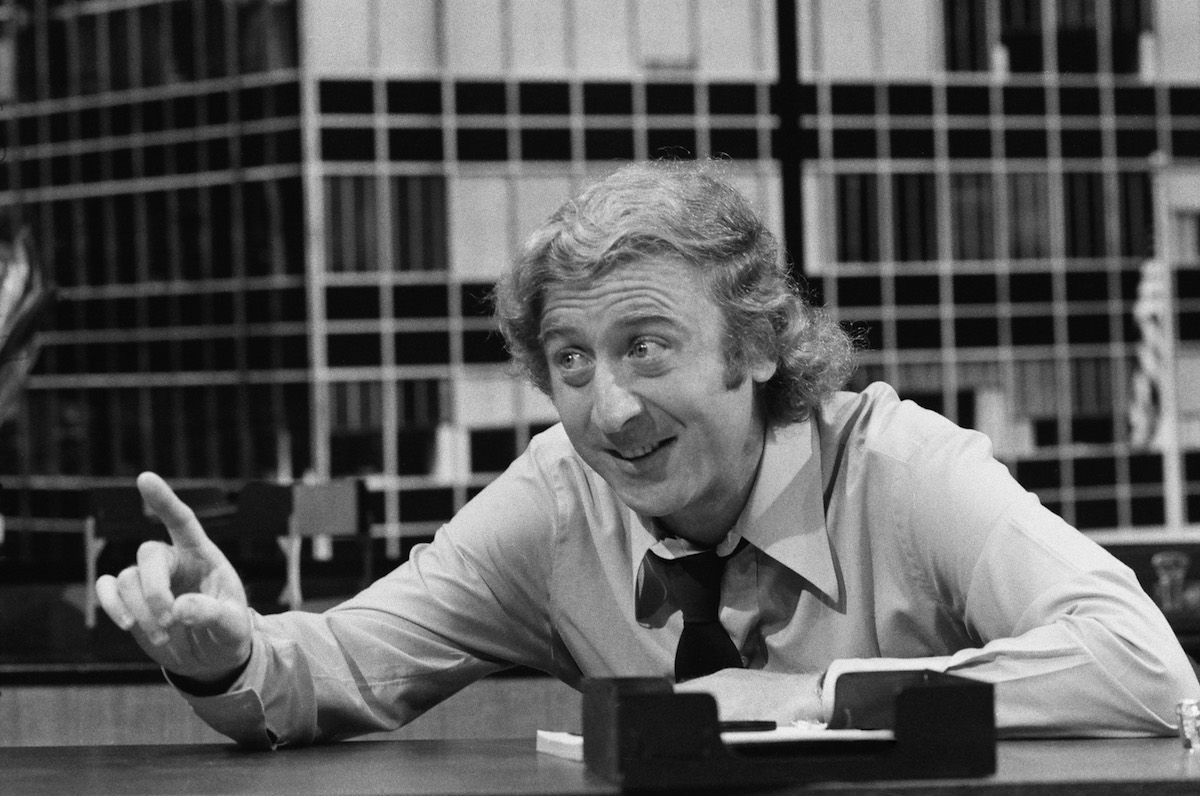
Gene Wilder, the Blazing Saddles star whose death at 83 was announced on Monday, knew that his fame was tied to a certain frenetic energy that, in his wake, can only be described as, well, Gene Wilder-esque. In 1970, on the occasion of the release of his movie Quackser Fortune Has a Cousin in The Bronx, he told TIME that he had worried about being typecast until that latest film had come along.
“There was always a reservoir of hysteria in me that I could call upon as an actor,” he said at the time. “As I grew out of it, I became more and more dissatisfied with the parts I was playing. But Hollywood, of course, couldn’t keep up with my psychological advancement. So I played hysterical accountants [The Producers], nervous undertakers [Bonnie and Clyde], and mad aristocrats [Start the Revolution Without Me].”
But even though he didn’t want to get pigeonholed, that “reservoir of hysteria” was hard-won, through personal troubles and firsthand research:
Wilder’s growth as a man and an actor has had its own special agonies. He was born Jerry Silberman in Milwaukee, the only son of a prosperous manufacturer of miniature beer and whiskey bottles. When his parents sent him to Black Fox Academy in Hollywood, he recalls, “I was the only Jew in the school, and I got either beat up or insulted every day.” He was soon back in Milwaukee taking drama lessons after school and playing summer stock in the East. Wilder studied slavishly—at the University of Iowa, at the Old Vic in London, with Lee Strasburg in New York. A stint as a draftee medic in the neuropsychiatric ward at Valley Forge Army Hospital taught him almost as much as all the lessons. “I chose the job because it seemed most applicable to acting,” he told TIME Writer Mark Goodman last week. “I’ve always been drawn to roles of emotional cripples.”
…In 1961 Wilder landed an off-Broadway role as a North Country farm boy in Arnold Wesker’s Roots. His big movie break came in The Producers; though the 1968 film was a disaster, Wilder’s frenetic ineptitude won him an Oscar nomination. As the frightened undertaker snatched for a joyride in Bonnie and Clyde, Wilder stirred almost as much comment as Warren Beatty and Faye Dunaway.
Eventually, however, as agitation brought his success on screen, he was able to try to relax in real life—to look for happiness in the face of anxiety.
“My quiet exterior used to be a mask for hysteria,” he said in 1970. “After seven years of analysis, it just became a habit.”
Get your history fix in one place: sign up for the weekly TIME History newsletter
Read the full profile, here in the TIME Vault: The Happy Peasant
More Must-Reads from TIME
- Donald Trump Is TIME's 2024 Person of the Year
- Why We Chose Trump as Person of the Year
- Is Intermittent Fasting Good or Bad for You?
- The 100 Must-Read Books of 2024
- The 20 Best Christmas TV Episodes
- Column: If Optimism Feels Ridiculous Now, Try Hope
- The Future of Climate Action Is Trade Policy
- Merle Bombardieri Is Helping People Make the Baby Decision
Write to Lily Rothman at lily.rothman@time.com